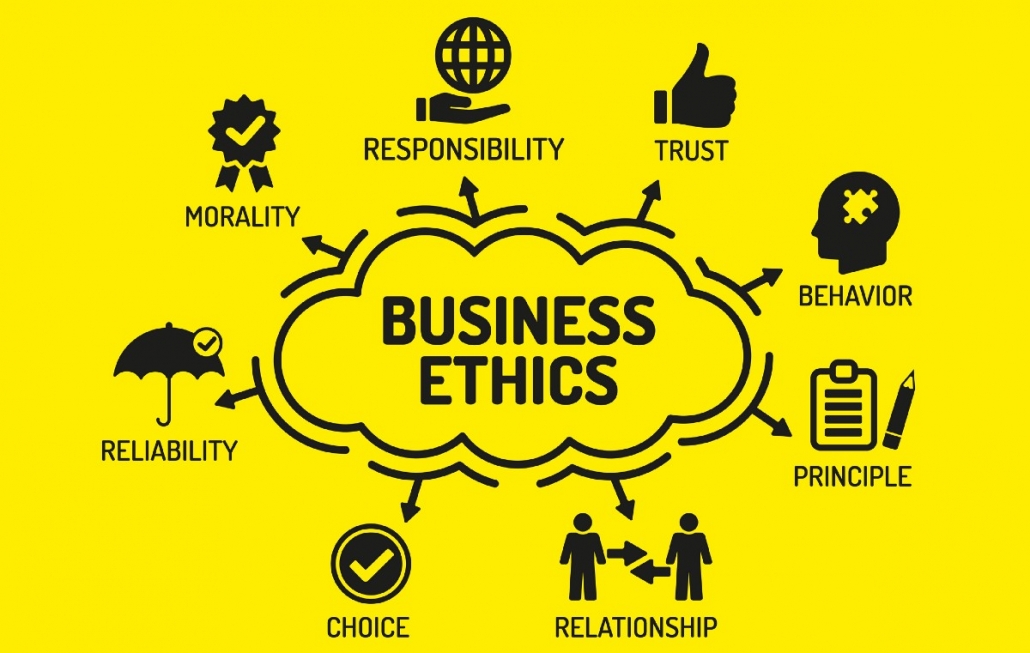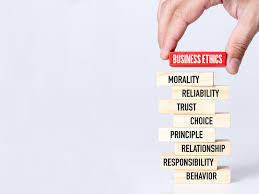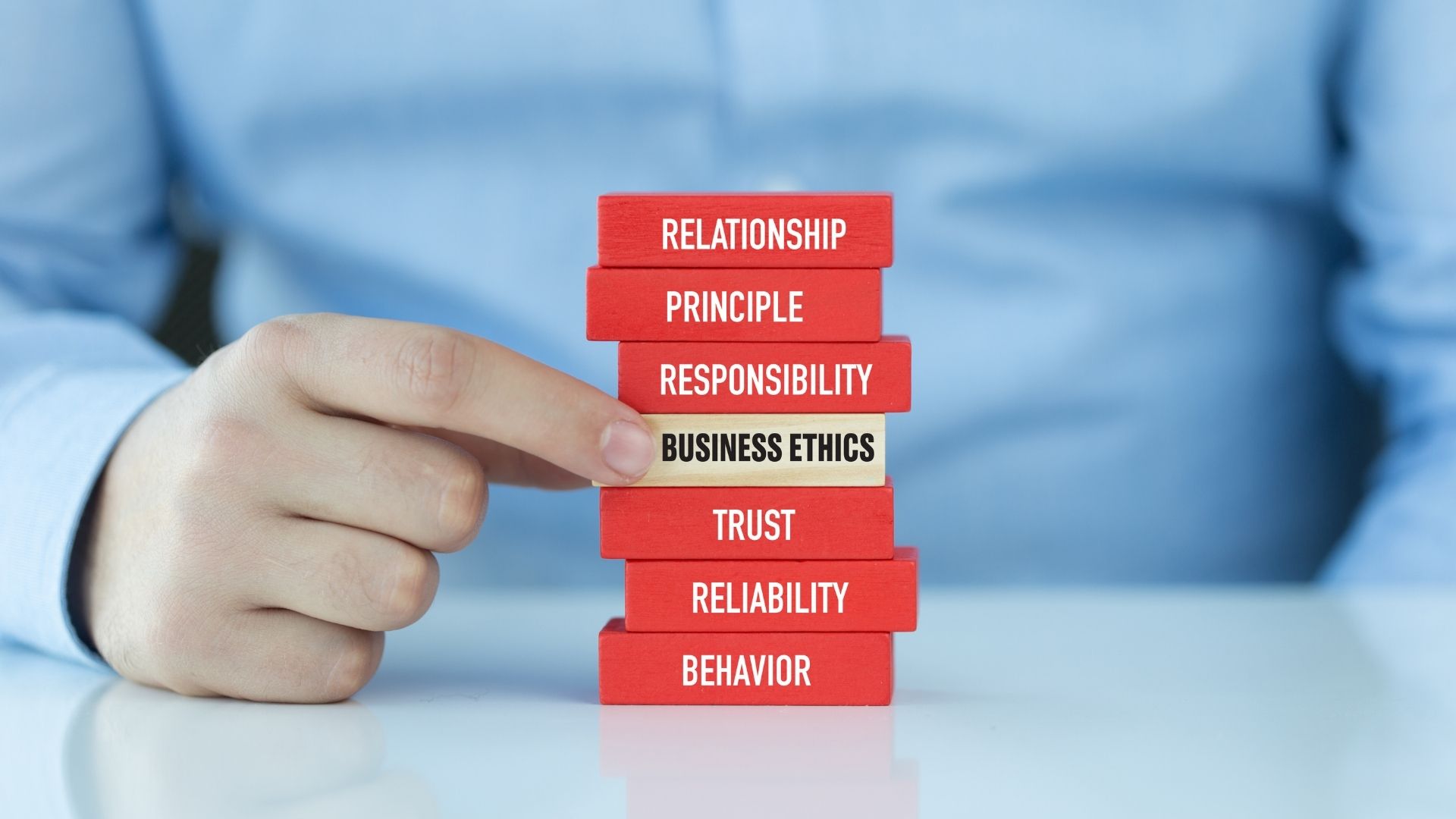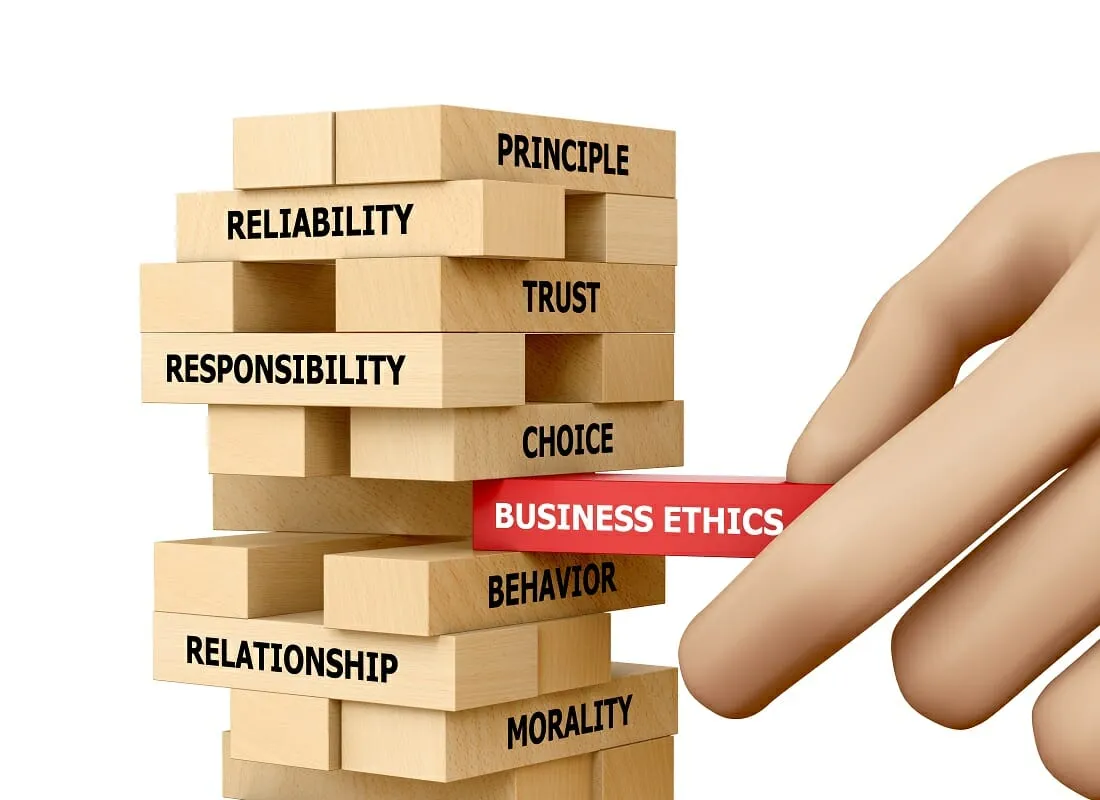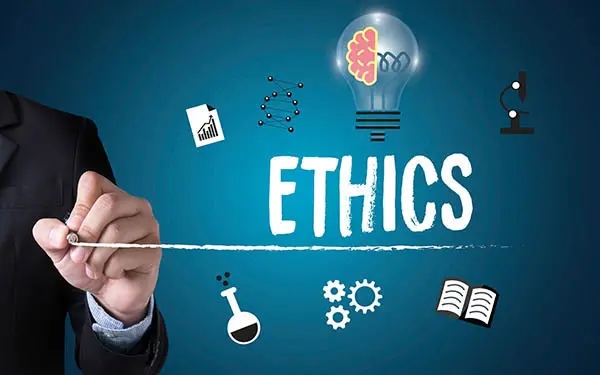Building Ethical Business Practices
The Business Case for Ethics
The relationship between business ethics and performance is stronger than ever. Research consistently shows that organizations committed to ethical practices outperform their competitors across key metrics:
Ethics Impact: By the Numbers
Beyond these quantifiable benefits, ethical business practices provide several critical advantages:
- ◆ Enhanced Reputation and Brand Value: Ethical practices build trust with customers, partners, and communities.
- ◆ Talent Attraction and Retention: Today's workforce prioritizes employers whose values align with their own.
- ◆ Risk Reduction: Ethical companies experience fewer legal issues, regulatory penalties, and scandals.
- ◆ Innovation Catalyst: Ethical constraints often drive creative problem-solving and new market opportunities.
- ◆ Investor Confidence: ESG (Environmental, Social, Governance) metrics increasingly influence investment decisions.
Key Domains of Business Ethics
Ethical business practices span multiple domains, each requiring deliberate attention and thoughtful implementation:
Workplace Ethics
How an organization treats its employees and fosters an ethical internal culture.
- • Fair compensation and benefits
- • Safe, inclusive working environments
- • Merit-based advancement opportunities
- • Work-life balance support
- • Anti-harassment and discrimination policies
Marketplace Ethics
How an organization conducts business with customers, suppliers, and competitors.
- • Honest marketing and sales practices
- • Fair pricing and contract terms
- • Quality and safety commitments
- • Ethical competitive intelligence
- • Supplier code of conduct
Environmental Ethics
How an organization impacts and protects the natural environment.
- • Resource conservation measures
- • Carbon footprint reduction
- • Waste minimization and recycling
- • Sustainable product design
- • Environmental compliance and reporting
Social Ethics
How an organization contributes to communities and broader society.
- • Community engagement initiatives
- • Philanthropy and volunteerism
- • Human rights commitments
- • Diversity and inclusion programs
- • Public health and safety measures
Governance Ethics
How an organization structures oversight and decision-making processes.
- • Board diversity and independence
- • Executive compensation practices
- • Transparency and disclosure
- • Whistleblower protections
- • Anti-corruption measures
Digital Ethics
How an organization manages technology, data, and digital interactions.
- • Data privacy and protection
- • AI and algorithm fairness
- • Cybersecurity responsibility
- • Digital accessibility
- • Responsible innovation
Frameworks for Ethical Decision Making
Implementing ethical business practices requires structured approaches to decision-making. Several frameworks can guide organizations toward more ethical choices:
The Ethics Check Framework
A practical tool for evaluating potential decisions through multiple ethical lenses:
Utility Test
Does this decision create the greatest good for the greatest number of stakeholders?
Rights Test
Does this decision respect the rights and dignity of all affected parties?
Justice Test
Is this decision fair and impartial? Does it distribute benefits and burdens equitably?
Virtue Test
Does this decision align with core virtues like honesty, compassion, and integrity?
Publicity Test
Would you be comfortable if this decision was reported on the front page of a major newspaper?
The Ethical Decision-Making Process
A step-by-step approach for navigating complex ethical dilemmas:
Awareness
- • Recognize the ethical issue
- • Identify stakeholders
- • Gather relevant facts
Analysis
- • Consider alternatives
- • Evaluate using ethical frameworks
- • Consult relevant policies
Action
- • Make the decision
- • Implement with integrity
- • Monitor outcomes
Building an Ethical Culture
Ethical business practices cannot sustain themselves through policies alone—they require a supportive organizational culture. Leaders can cultivate ethical culture through deliberate actions:
Lead by Example
Leadership behavior sets the ethical tone for the entire organization. When executives demonstrably prioritize ethics over short-term gains, employees follow suit. This includes visible decision-making that puts ethical considerations first, acknowledging mistakes, and holding themselves accountable.
Communicate Expectations Clearly
Ethical expectations should be explicitly stated and regularly reinforced. This includes developing comprehensive codes of conduct, creating clear policies on specific ethical issues, and ensuring these materials are accessible, understandable, and regularly referenced in communications.
Provide Ethics Training
Regular training helps employees navigate ethical gray areas and apply ethical frameworks to complex situations. Effective programs include scenario-based learning, industry-specific case studies, and opportunities to practice ethical decision-making in safe environments.
Create Safe Reporting Mechanisms
Employees must feel safe reporting ethical concerns without fear of retaliation. This requires anonymous reporting channels, clear non-retaliation policies, and visible follow-through when issues are raised. Organizations should celebrate, rather than punish, ethical whistle-blowing.
Recognize and Reward Ethical Behavior
What gets rewarded gets repeated. Organizations should incorporate ethical considerations into performance evaluations, promotion decisions, and recognition programs. Celebrating employees who make difficult but ethical choices reinforces the importance of integrity.
Case Study: Ethics Transformation
A global financial services firm facing reputational damage after compliance issues embarked on a comprehensive ethics transformation:
- • Created an independent Ethics Office reporting directly to the board
- • Revised compensation structures to reward long-term sustainable performance
- • Implemented a "values vs. rules" training program for all employees
- • Established an anonymous ethics hotline with guaranteed non-retaliation
- • Incorporated ethical behavior metrics into leadership evaluations
Three years after implementation, the company saw a 65% reduction in regulatory findings, 43% decrease in customer complaints, and substantially improved employee engagement scores.
Navigating Ethical Challenges
Even with robust frameworks and intentions, organizations face complex ethical dilemmas. Several common challenges require special attention:
Cross-Cultural Ethics
Global organizations operate across cultures with different ethical norms and expectations. This creates tensions when practices considered acceptable in one region conflict with standards in another.
Navigating Approach:
- • Establish non-negotiable global ethical principles that transcend cultural differences
- • Create flexible implementation approaches that respect local contexts
- • Develop cultural intelligence training for decision-makers
- • Engage local stakeholders in policy development
Short-Term vs. Long-Term Considerations
Markets often reward short-term results, creating pressure to compromise long-term ethical considerations for immediate gains. This tension is particularly acute in publicly traded companies.
Navigating Approach:
- • Revise incentive structures to reward long-term sustainable performance
- • Educate investors about the business case for ethics
- • Establish governance mechanisms that protect long-term thinking
- • Measure and report on both financial and ethical outcomes
Technological Ethics
Rapid technological advancement creates novel ethical challenges, from AI bias to privacy concerns. Organizations must navigate these issues without established precedents.
Navigating Approach:
- • Implement "ethics by design" principles in technology development
- • Establish cross-functional ethics committees for technology initiatives
- • Conduct regular ethical impact assessments
- • Engage with external stakeholders and experts on emerging issues
How Al Mithaq Institute Can Help
Al Mithaq Institute offers specialized training programs to help organizations build robust ethical business practices:
- ● Business Administration Diploma: Comprehensive curriculum including ethical leadership modules.
- ● Corporate Governance Program: Advanced training in ethical governance structures and oversight.
- ● Sustainability and Renewable Energy Course: Practical approaches to environmental ethics.
- ● Legal Training: Understanding regulatory frameworks and compliance requirements.
The Future of Business Ethics
The ethical expectations for businesses continue to evolve rapidly. Forward-looking organizations should prepare for several emerging trends:
Integrated Reporting
The movement toward unified financial and non-financial reporting will accelerate, with standardized ESG metrics becoming mandatory in many jurisdictions.
Stakeholder Capitalism
The shift from shareholder primacy to stakeholder value creation will continue, with more businesses adopting formal stakeholder governance models.
Ethics Technology
AI-powered ethics monitoring tools will emerge to help organizations track ethical performance, identify risks, and predict potential ethical issues before they occur.
Expanded Accountability
Supply chain ethics will become a central focus, with organizations held accountable for ethical violations throughout their entire value chain.
Organizations that proactively embrace these trends will not only avoid future compliance headaches but will position themselves as leaders in the ethical business movement.
Conclusion: The Ethical Imperative
Building ethical business practices is no longer optional—it's essential for sustainable success in today's marketplace. Organizations that embed ethics into their core operations gain competitive advantages while creating positive impact.
The most successful ethical businesses share common characteristics:
- • They view ethics as a strategic advantage rather than a compliance burden
- • They integrate ethical considerations into every business decision
- • They invest in building ethical culture from the boardroom to the frontline
- • They measure, report on, and continuously improve their ethical performance
- • They adapt their ethical frameworks to address emerging challenges
By committing to these principles, organizations can build businesses that succeed financially while making positive contributions to society, the environment, and all stakeholders.
Frequently Asked Questions
How do I start building an ethical culture in my organization?
Begin by assessing your current ethical climate through anonymous surveys and focus groups. Develop a clear code of ethics with employee input. Ensure leadership visibly models ethical behavior. Implement ethics training for all employees. Create safe reporting mechanisms. Incorporate ethical considerations into performance evaluations and recognition programs. Remember that culture change takes time and consistent reinforcement.
Can small businesses implement ethical practices with limited resources?
Absolutely. Small businesses can often implement ethical practices more effectively than large corporations due to their agility and direct leadership influence. Start with clear values that guide decision-making. Develop simple, practical policies for common ethical issues. Leverage free resources like industry association ethics materials. Partner with like-minded small businesses to share ethics resources. Remember that authentic ethical commitment matters more than elaborate programs.
How do we handle situations where ethical standards vary across different countries?
Establish core ethical principles that apply universally across your organization regardless of location. Create a decision framework for navigating cross-cultural ethical differences that distinguishes between negotiable practices (which may vary by culture) and non-negotiable values. Develop local ethics committees with representatives who understand both company values and local contexts. Provide cross-cultural ethics training for employees who work internationally. When conflicts arise, prioritize human rights and dignity above cultural relativism.
How can we measure the ROI of our ethics initiatives?
While some ethical outcomes are difficult to quantify, several metrics can help assess ROI: Reduced compliance violations and associated costs; employee retention rates (especially high-performers); customer loyalty and retention; brand value assessments; litigation costs and regulatory fines avoided; employee productivity and engagement scores; supplier relationship stability; and access to capital (particularly from ESG-focused investors). The most sophisticated organizations develop ethics scorecards that track both leading indicators (preventive measures) and lagging indicators (outcomes).
